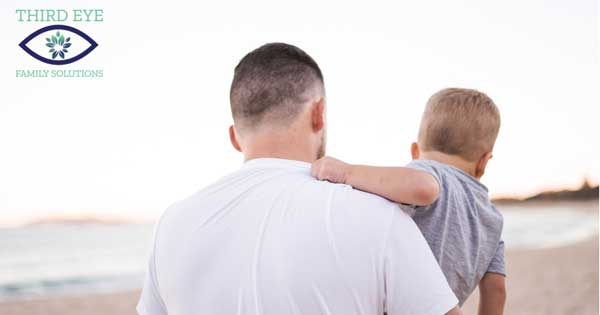Divorce. It isn’t a fun subject, yet with more than 50% of marriages ending in divorce in the United States, it’s a subject many of us have to face at some point. It’s hard enough to end a marriage, but when children are involved we face additional challenges. Essentially a piece of our relationship – parenting together – remains long past the end of the marriage itself.
For some couples, co-parenting is relatively easy. Both parents are on the same page about major decisions, and when challenges arise it is simple to see what will best benefit the child and make choices to move in that direction. For others, however, the strain of divorce lingers and parenting becomes a major obstacle to happiness and peace. In this series of blog posts, we will look at ways to best serve the needs of children with divorced parents.
The Goal of Co-Parenting: Stability
First and foremost, it is critical for children to have stability in their lives. This can be achieved in many ways. A consistent schedule (with room for flexibility), having things in each home that provide comfort and convenience and similar rules and routines in each household are a few basic examples (a future post will look at what to do when rules vary greatly between homes).
Children also need to know that parents still respect and care for one another. Hearing this allows them to freely and openly love each parent without feeling that they need to pick sides.
How do you show love and respect for your former spouse when you feel angry, hurt, or resentful?
It can definitely be a challenge! At a minimum, don’t argue in front of your children. Don’t talk poorly about your former spouse when children are nearby or could overhear – save it for your therapy sessions, or when out to lunch with a friend.
Try to focus on what you admire about the other parent and the things they are doing well. Hearing, “Wasn’t that wonderful when Mommy took you to the movie?” or, “Your dad is such a great cook, I hope that I can make this food as well as he does!” gives the child a sense of pride in the other parent, and reminds them that you appreciate aspects of who they are. Even if you have to really stretch to find positive things to say, it goes a long way.
Have Open Honest Communication As a Family
One pitfall is trying to protect the child’s relationship with the other parent. For example, one client talked about her former husband’s unreliability in picking up their boys for visits. He would promise to be there and would come by hours late or sometimes not at all. She walked on eggshells trying to keep the boys from being upset, making excuses for the father so that the boys would not be angry with him. Eventually, she stopped telling them when their father had said he would be there – this eliminated many meltdowns from the younger boys because they were no longer waiting for 3 p.m. and then crying when it came and went. The oldest son had a cell phone and the mother encouraged him to speak directly with his dad. Hearing his son’s disappointment when he canceled plans ended up being enough for this dad to start showing up on time.
If you can find ways to work together, co-parenting after divorce can be a relatively smooth ride. You can start by having some conversations about how you want to handle big things like birthdays and other holidays.
Find some common ground and discover what will not only give you a sense of autonomy but will communicate to your children that you are working together.
Throughout this series, we will explore the many challenges that come with parenting after divorce. We would love to hear what your biggest obstacles are. Comment below if you have a specific topic you would like us to cover.
Third Eye Family Solutions specializes in supporting families to have healthy relationships, and communication. If you or someone you know needs help to navigate family dynamics including parenting after a divorce we are here to help.
Schedule Your Free Consultation If You and Your Family Need Support After a Divorce >


Recent Comments